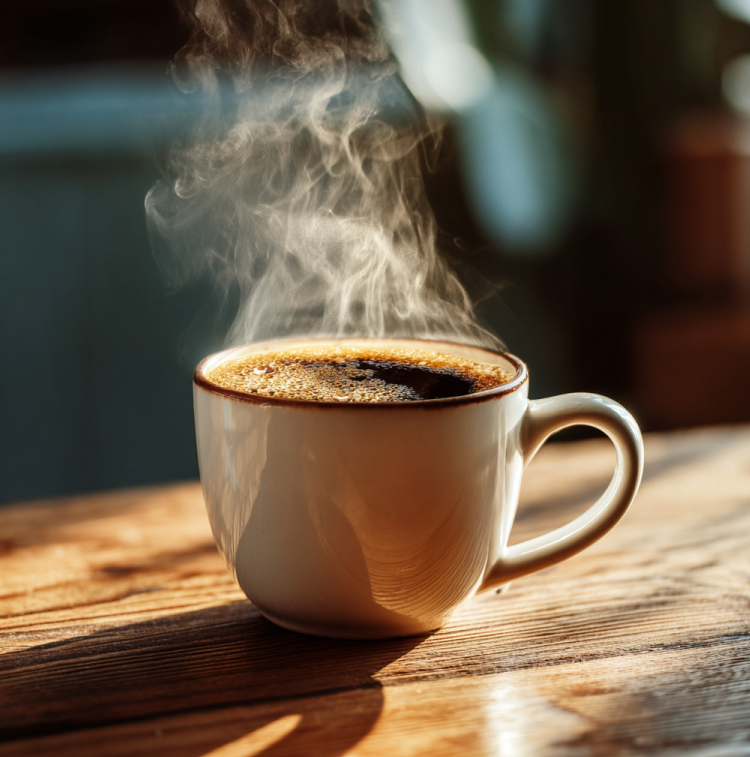Let’s be honest, nothing ruins a morning faster than a bitter cup of coffee. You grind the beans, heat the water, and pour with love… only to take a sip that tastes like burnt toast and regret. Don’t worry, you’re not cursed. Bitterness in coffee usually has a cause (and a fix).
At Headcount Coffee, we’ve spent years perfecting roasts and brewing methods that bring out balance, not bitterness. So, let’s break down why your coffee might taste harsh, and how to bring back the smooth, rich flavor you actually want.
☕ What Makes Coffee Taste Bitter?
Bitter coffee isn’t just bad luck, it’s chemistry. Most bitterness comes from over-extraction, when hot water pulls too many compounds out of the grounds. The goal is balance: extracting just enough of the good stuff (acids, oils, sugars) before the harsher elements take over.
Here are the main culprits:
- Over-roasted beans: Dark roasts can taste smoky and bitter if roasted or brewed too long.
- Too hot water: Anything over 205°F (96°C) extracts bitter compounds quickly.
- Over-extraction: Brewing too long or using too fine a grind lets bitterness build up.
- Old coffee: Stale beans lose aroma and sweetness, leaving behind flat, harsh notes.
- Dirty equipment: Old coffee oils can go rancid and ruin even the best beans.
Sound familiar? The good news is that every one of these issues is fixable, and once you adjust, your coffee will taste smoother and more balanced almost instantly.
🔧 How to Fix Bitter Coffee
Whether you brew pour-over, espresso, or French press, these simple changes can transform a bitter brew into a beautiful one.
- Grind a bit coarser. Finer grinds extract faster, and can go bitter fast. Try one step coarser and taste again.
- Lower your water temperature. Aim for 195–205°F (90–96°C). If you don’t have a thermometer, let boiling water rest for 30 seconds before brewing.
- Shorten the brew time. Over-steeping releases tannins and bitter compounds. Use a timer and stick to recipe times.
- Use fresh, properly roasted beans. Old or low-quality beans have already lost their sweetness. Always look for a roast date.
- Clean your gear. Coffee residue = bitterness. Clean your grinder, brewer, and carafe weekly.
🌱 The Role of Roast Level
Each roast brings its own flavor balance:
- Light roast: Bright, citrusy, often tangy, rarely bitter but can taste sour if under-extracted.
- Medium roast: Balanced and sweet, with gentle chocolate or nutty notes, perfect for everyday brewing.
- Dark roast: Bold and intense, but can cross into burnt or ashy if brewed too long.
At Headcount Coffee, we design our roasts to highlight the bean’s natural character, not cover it with bitterness. From our Roaster’s Choice Sampler to our custom Profiled Pour, you’ll find that each roast hits a flavor sweet spot, fresh, flavorful, and never harsh.
💡 Bonus: How to Balance Bitterness Naturally
If you still want a little extra sweetness or depth in your cup:
- Add a pinch of salt. Yes, really. A tiny bit of salt neutralizes bitterness and enhances flavor.
- Adjust your ratio. More coffee = stronger flavor; less coffee = weaker (and sometimes more bitter). Try a 1:16 ratio of coffee to water as a baseline.
- Store beans correctly. Keep them in a sealed container, away from light and heat, not in the fridge.
💬 Final Thoughts
Bitter coffee isn’t a life sentence, it’s just a signal that something’s off. A few small tweaks to your grind, temperature, or beans can make all the difference.
If you’re ready to taste the difference, skip the supermarket bags and grab a freshly roasted coffee from Headcount. We roast every bag to order, because great coffee shouldn’t taste bitter; it should taste alive.
FAQ — Fixing Bitter Coffee
Q: Why does my coffee taste bitter?
A: Bitterness usually comes from over-extraction, water that’s too hot, or stale beans.
Q: How do I make coffee taste less bitter?
A: Use a coarser grind, slightly cooler water, and avoid brewing too long. Always start with fresh beans.
Q: Which roast is least bitter?
A: Medium roasts tend to have the most balance, rich and flavorful without the harshness of dark roasts.
Q: Does salt really help reduce bitterness?
A: Yes! A pinch of salt can mute bitterness and make flavors pop.
More From Headcount Coffee
Why Freshly Roasted Coffee Matters
How to Use a French Press (Like a Pro)
The Ultimate Coffee Grind Size Guide
(One of many brewing guides shared by Headcount Coffee — a Texas roastery where coffee and conversation meet.)

0 comments